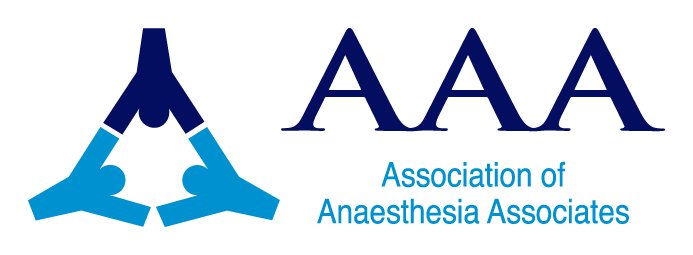We are pleased to share the latest update from the GMC June 2020, on the regulation of anaesthesia associates, see below quoted text and links.
The AAA continue to work closely with partners to work towards bringing AAs into statutory regulation. Please note: medicines prescribing is a separate legislative process. Medicines prescribing will only occur following regulation. We are working to ensure medicines prescribing can be made available to AAs, as quickly and safely as possible.
https://www.gmc-uk.org/news/news-archive/map-regulation
In July 2019, the Department of Health and Social Care (DHSC), with the support of the four UK governments, asked us to regulate physician associates (PAs) and anaesthesia associates (AAs).
We’re pleased to support the development of these valuable professions, which can complement and support doctors in their roles. Regulation will help to increase the contribution PAs and AAs can make to UK healthcare, while keeping patients safe.
New legislation is needed before regulation can start. We understand this is likely to be introduced in the second half of 2021. Over the next year we’ll be designing the processes and policies needed to regulate PAs and AAs. The UK government is funding all set-up costs and we won’t use doctors’ fees to cover this work.
Who are physician associates and anaesthesia associates?
PAs work alongside doctors and form part of the multidisciplinary team. They work across a range of specialties in general practice, community and hospital settings. AAs, also known as physicians’ assistants (anaesthesia) in Scotland, work as part of the anaesthetic team. They provide care for patients before, during and after their operation or procedure.
PAs and AAs are two of the four groups known collectively as medical associate professions (MAPs). The other two, who we will not be regulating, are advanced critical care practitioners and surgical care practitioners.
There are around 2,000 PAs and 180 AAs working in the UK. Although the numbers are relatively small at the moment, we expect them to grow steadily in the next few years. 36 UK universities run PA courses, and one university offers the AA course.
What will regulation look like?
In many ways, it will be similar to how doctors are regulated. There will be policies and processes that cover:
- registration
- professional guidance
- education
- fitness to practise.
However, the regulatory framework will be proportionate, reflecting the size of the professions, their roles and responsibilities, and the fact they are dependent practitioners.
Once we start regulating MAPs, newly qualified PAs and AAs will have to join our register to be able to practise in the UK. We’ll also put transitional arrangements in place for those who are already qualified and/or practising in the UK. We’ll publish more information about these plans later this year.
More details of our policies and processes will be added to our website in the coming months. Until legislation is passed, we’d recommend that all practising PAs and AAs join their voluntary registers managed by the Faculty of Physician Associates and Royal College of Anaesthetists.
How can I get involved?
If you want to keep up to date or get involved with this work, you can join our MAPs community of interest. This is open to everyone. You don’t need to be a practising PA or AA to sign up. We’ll send regular email updates as well as opportunities for you to share your views.
